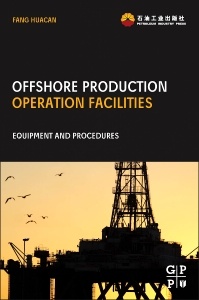Description
Offshore Operation Facilities
Equipment and Procedures
Authors: Fang Huacan, Duan Menglan
Language: English
Subjects for Offshore Operation Facilities:
Keywords
offshore; engineering; oil; gas; deepwater; shallow; drilling; production; natural gas; pipe; subsea; safety system; environmental load; submarine; facilities; China
1196 p. · 19x23.3 cm · Paperback
Description
/li>Contents
/li>Readership
/li>Biography
/li>Comment
/li>
1. Offshore oil-gas engineering2. Environment and enviromental load3. Offshore oil-gas drilling and equipment4. Offshore oil (gas) production engineering and equipment5. Special problems of deepwater oil-gas engineering6. Beach oil engineering7. Submarine pipeline engineering and cable engineering8. Safety system engineering of offshore oil
Production Engineers, Structural Engineers, Mechanical Engineers, Chemical Engineers, Drilling Engineers, Pipeline Engineers, Offshore Engineers, Any engineers working with offshore production, transportation, or drilling of natural gas and oil
- Comprehensive guide to the latest technology, strategies, and best practices for offshore operations
- Step-by-step approach for dealing with common challenges such as deepwater and shallow waters
- Includes submarine pipeline, cable engineering, and safety system engineering
- Unique examples from various offshore locations around the world, with special focus on offshore China
These books may interest you

Subsea Engineering Handbook 203.23 €



